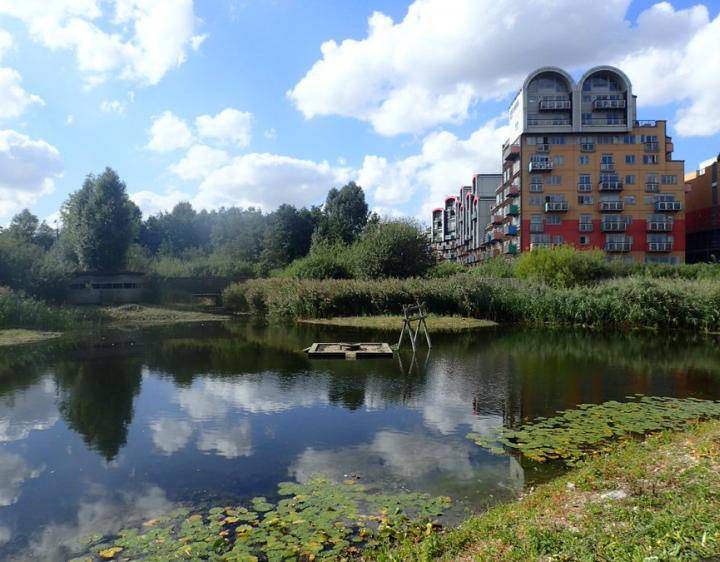
The Greenwich Ecology Park in London is an oasis of nature in amongst ever expanding developments of flats. On Thursday 19th January the WHEB Client Relationship Team donned their long-johns and set out in freezing temperatures for a team away day. We spent the day with The Conversation Volunteers (TCV) who in 2021:

The plan for the day was to clear an area by coppicing seven-year-old willow trees to manage their size and create light for new growth1. The willow branches were then ”snedded” (stripped) and saved to be woven into fences or used for fence posts. The brash (smaller branches we snipped off) will be chipped and returned to the soil. This thoughtful, circular process where nothing is wasted was just one of the sustainable approaches to land management that we learnt about during the day. (A second was the introduction of non-invasive weevils to clear algae from the top of one of the lakes!)
Jo, the warden and Louise, a trainee warden spent the day with us and shared their knowledge generously. In doing so the importance of this four-acre plot of freshwater habitat became more and more clear. Greenwich Peninsula Ecology Park was created in 2002 and had always existed amidst blocks of flats - some with views over the park and of the River Thames beyond2. TCV run volunteer days twice a week, and also run dedicated sessions for school children and teenagers. The park is open all year round and is free for visitors.
It is predicted that by 2050 68% of the global population will live in cities (2.5 billion more than currently do today)3. Urban green spaces, like the Greenwich Peninsula Ecology Park, have multiple benefits for both health and the planet4:
- Reducing air pollution as they mitigate short-lived climate pollutants;
- Reducing the urban heat island effect on a warming planet and therefore reducing the need for air conditioning;
- Providing access to green spaces which are good for human health, wellbeing and stress reduction;
- Enabling children to feel connected with nature; and,
- Making green spaces available to all – socially disadvantaged individuals tend to benefit most from improved access to urban greenery.
In the afternoon we were taken for a tour of the park including the two bird hides. Jo spoke of the different birds that visit the park and how they were looking forward to the return of the reed warblers and swifts after their winter in Africa. This linked in well to WHEB’s current book club pick – Hurricane Lizards and Plastic Squid by Thor Hanson - which describes how nature is already responding to a warming world and how the seasonal patterns we are accustomed to might be in the process of shifting5.

We thoroughly enjoyed our day and we debriefed over crisps and a drink in a pub afterwards. It was great to be outdoors, learning new skills, spending relaxed time together as a team and contributing (in a very small way) to the maintenance of this super project. We all agreed to return in the spring to see the wildflower meadow in full bloom, find out which birds were visiting and catch up with Jo.
TCV are always on the lookout for volunteers. We’d certainly recommend it for a day away with your team. For more information on TCV and Greenwich Peninsula Ecology Park follow the link: https://www.tcv.org.uk/greenwichpeninsula/about-gpep
Sign up here to recieve our monthly and quarterly commentaries in your inbox.
1 https://www.rhs.org.uk/plants/types/trees/coppicing
2 https://www.tcv.org.uk/greenwichpeninsula
3 https://www.nhm.ac.uk/discover/why-we-need-green-spaces-in-cities.html
4 https://www.un.org/en/chronicle/article/green-spaces-invaluable-resource-delivering-sustainable-urban-health
5https://www.goodreads.com/book/show/56643993-hurricane-lizards-and-plastic-squid
